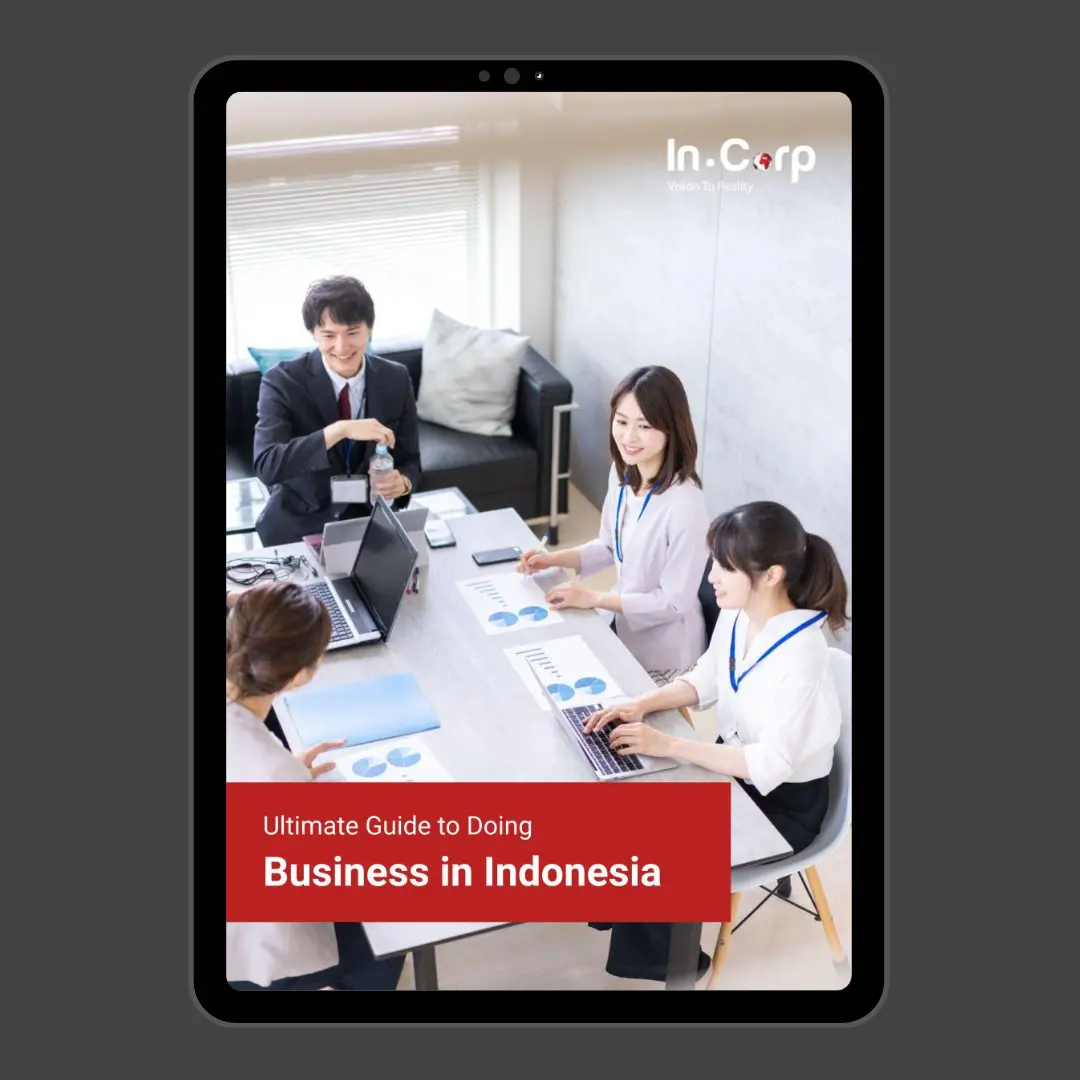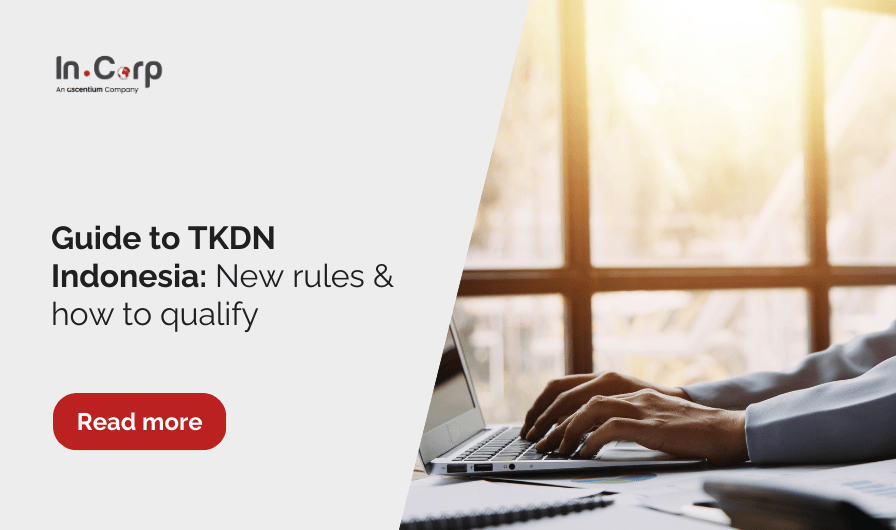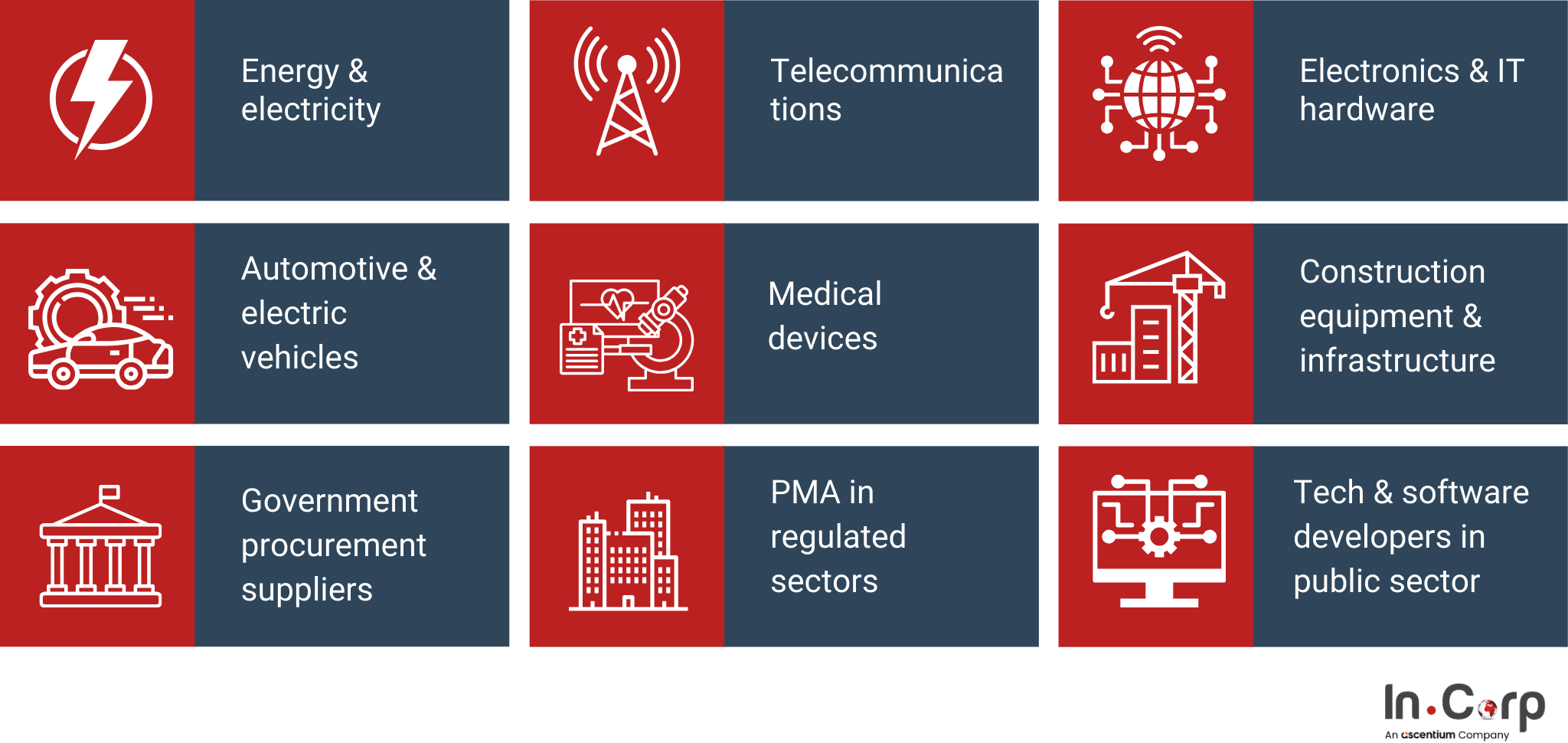TKDN Indonesia (Tingkat Komponen Dalam Negeri) is a local content regulation requiring products and services, especially in government procurement, to include a portion of Indonesian-made components.
Once seen as a protectionist policy, TKDN has evolved into a strategic tool to boost domestic manufacturing, create jobs, and reduce reliance on imports. It’s vital in the energy, automotive, electronics, and digital infrastructure.
This article explains the current rules, how TKDN is calculated, and how recent reforms can benefit your business.
Challenges in TKDN Indonesia implementation
Although TKDN Indonesia aims to boost the local industry, its implementation hasn’t been without challenges, such as:
- Lengthy certification processes that delay time-to-market
- High compliance costs, especially for SMEs
- Unclear rules and inconsistent enforcement across industries
- Limited local supply chain support in some sectors
Foreign investors have also raised concerns, citing TKDN as a trade barrier that complicates entry into the Indonesian market.
New TKDN regulations in Indonesia
To address industry feedback, President Prabowo introduced Presidential Regulation No. 46 of 2025, which marks a major shift:
- Tiered Procurement Priorities based on TKDN + Company Benefit Weight (BMP)
- Incentive-based scoring model to reward localization efforts
- Faster certification (from 3 months to 10 days)
- Equal application to all firms, local or foreign
These reforms show that TKDN Indonesia is evolving, from a strict mandate to a strategic tool that rewards real investment in local value creation.
What types of businesses need TKDN certification?
As of 2025, TKDN Indonesia requirements continue to apply to a wide range of industries, especially those involved in government procurement or operating within strategic sectors prioritized by the state, which are:
Suppliers to government projects
Companies bidding for public tenders must meet specific TKDN thresholds. Under Presidential Regulation No. 46 of 2025, products with a combined TKDN + BMP (Company Benefit Weight) score of ≥ 40% and a minimum TKDN of 25% are prioritized.
Companies in strategic sectors
TKDN is mandatory or heavily enforced in industries including:
- Energy & electricity (e.g., turbines, transformers)
- Telecommunications (e.g., 4G/5G devices, fiber optic systems)
- Electronics & IT hardware (e.g., smartphones, laptops)
- Automotive & electric vehicles (EVs)
- Medical devices (with specific product-based requirements)
- Construction equipment & infrastructure
Read more: How to establish a medical device manufacturing company in Central Java
Foreign and tech-based companies targeting the public sector
Foreign companies (PMA) and tech developers offering products or services to the Indonesian government, especially in industries like health tech, infrastructure, and digital platforms, are increasingly expected to comply with TKDN Indonesia.
This includes software firms bundling platforms with hardware or services. While not always legally required, TKDN compliance is critical for eligibility in public tenders and long-term market access.
Guide to Doing Business in Jakarta

How TKDN Indonesia is calculated
TKDN Indonesia still uses the traditional cost-based calculation method. An incentive-based system is under review but not yet active.
TKDN (%) = (Value of Local Content / Total Production Cost) × 100
Components included:
- Local raw materials
- Indonesian labor and services
- Domestic overhead or operational costs
| Cost component | Value (IDR) |
| Local materials & labor | 250,000,000 |
| Imported components | 150,000,000 |
| Total production cost | 400,000,000 |
TKDN (%) = (250,000,000 / 400,000,000) × 100 = 62.5%
The final TKDN score is 62.5%, which qualifies the product for priority status in public procurement under current regulations.
New incentive-based model calculation
A bonus system is being developed to reward deeper localization efforts as part of the 2025 reforms. These bonuses would boost the TKDN score beyond the base calculation, but this model is inactive.
| Localization activity | Bonus (%) |
| Building a local factory | +15% |
| Hiring Indonesian workers | +10% |
| Partnering with local R&D teams | +5% |
How companies can benefit from the TKDN Indonesia reform
The new TKDN reform isn’t just about compliance; it’s an opportunity. By aligning with the new rules, businesses can unlock access to public projects, gain a competitive edge, and build stronger ties with the Indonesian market.
- Boost local content early by sourcing from Indonesian suppliers
- Use SIINas to register products and fast-track certification
- Partner locally to meet or exceed TKDN thresholds
- Prepare for incentives that reward deeper localization
Aligning early helps your company gain a competitive edge while simplifying regulatory compliance.
Simplify your TKDN certification with InCorp
TKDN Indonesia is evolving into a smarter, more business-friendly policy, but the process can still be complex. Yes, you can do it yourself. The tools and systems are in place. However, if you want to get it done faster, smoother, and with less stress, InCorp Indonesia (an Ascentium Company) is here to help. We can:
- Navigate TKDN certification
- Prepare procurement-ready documentation
- Form local partnerships and register with SIINas
- Leverage upcoming incentives under the new reform
Get it right from the start. Click the button below to turn compliance into opportunity.
Frequently Asked Questions
What is TKDN Indonesia?
TKDN (Tingkat Komponen Dalam Negeri) is a regulation that requires products and services, especially in government projects, to include a minimum percentage of Indonesian-made components.
Why is TKDN important for businesses?
TKDN helps boost local industries, create jobs, and gives companies better access to public tenders. Meeting TKDN thresholds makes businesses more competitive in Indonesia’s market.
Which industries must comply with TKDN Indonesia?
Key sectors include energy, telecommunications, electronics, automotive, medical devices, and construction. Companies supplying government projects must also meet TKDN requirements.
How is TKDN calculated?
TKDN (%) = (Local Content Value ÷ Total Production Cost) × 100. For example, if 62.5% of a product’s value is local, it qualifies for procurement priority.
What are the benefits of TKDN reforms in 2025?
The new reforms speed up certification (10 days), introduce incentive-based scoring, and reward companies that invest in local factories, hire Indonesian workers, or partner with local R&D.
Get in touch with us.
What you'll get
A prompt response to your inquiry
Knowledge for doing business from local experts
Ongoing support for your business
Disclaimer
The information is provided by PT. Cekindo Business International (“InCorp Indonesia/ we”) for general purpose only and we make no representations or warranties of any kind.
We do not act as an authorized government or non-government provider for official documents and services, which is issued by the Government of the Republic of Indonesia or its appointed officials. We do not promote any official government document or services of the Government of the Republic of Indonesia, including but not limited to, business identifiers, health and welfare assistance programs and benefits, unclaimed tax rebate, electronic travel visa and authorization, passports in this website.




